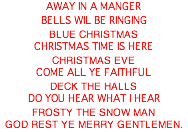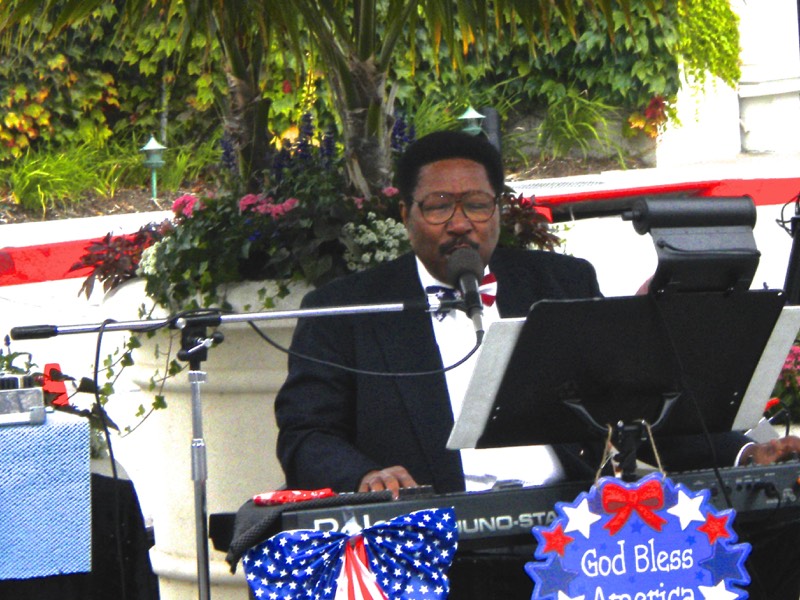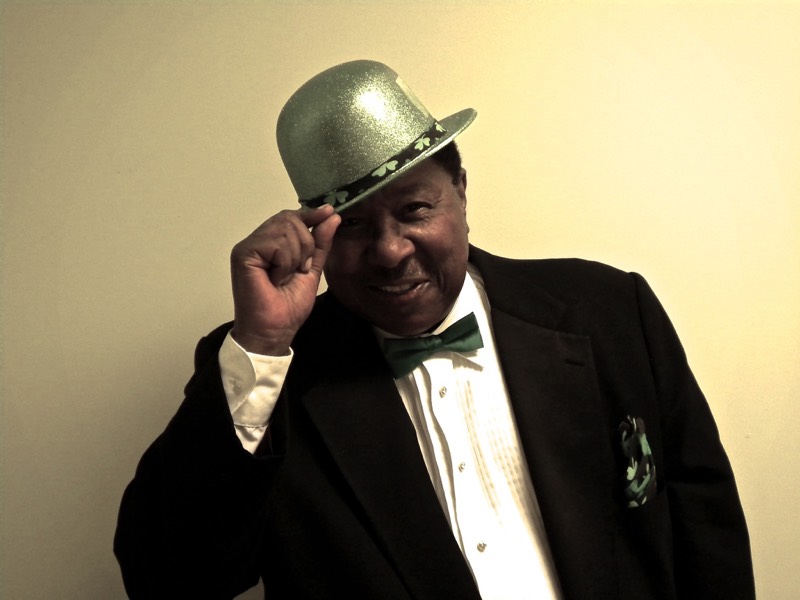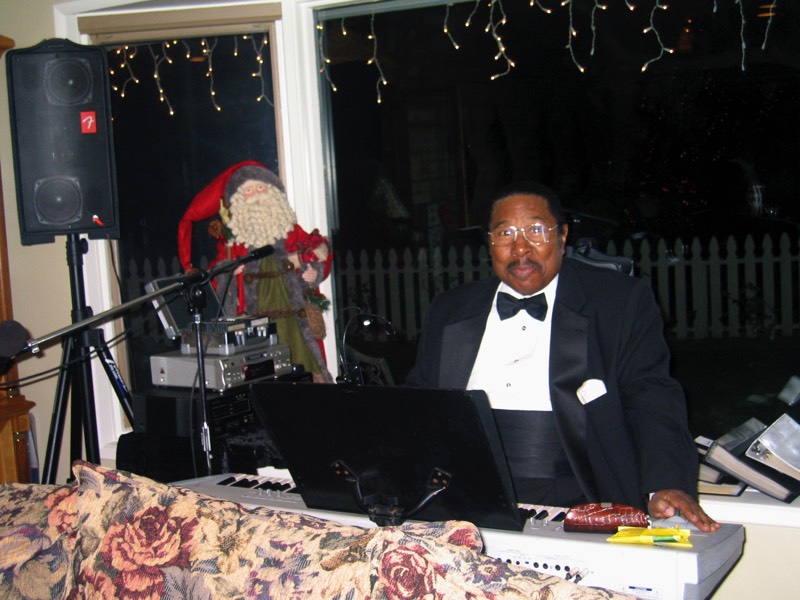









American Holiday’s
“A good time to throw a party”



New Year's Day
New Year's Day is January 1. The celebration of this holiday begins the night before, when Americans gather to wish each other a happy and prosperous coming year. Many Americans make New Year's resolutions. See the New Year's resolutions that are popular every year.
Birthday of Martin Luther King, Jr.
Martin Luther King, Jr. Day is celebrated on the third Monday in January. The Reverend Martin Luther King, Jr. was an African-American clergyman who is recognized for his tireless efforts to win civil rights for all people through nonviolent means.
Washington's Birthday
Washington's Birthday is observed the third Monday of February in honor George Washington, the first President of the United States. This date is commonly called Presidents' Day and many groups honor the legacy of past presidents on this date.
Memorial Day
Memorial Day is a observed the last Monday of May. It originally honored the people killed in the American Civil War, but has become a day on which the American dead of all wars are remembered.
Independence Day
Independence Day is July 4. This holiday honors the nation's birthday - the adoption of the Declaration of Independence on July 4, 1776. It is a day of picnics and patriotic parades, a night of concerts, and fireworks.
Labor Day
Labor Day is the first Monday of September. This holiday honors the nation's working people, typically with parades. For most Americans it marks the end of the summer vacation season and the start of the school year.
Columbus Day
Columbus Day is a celebrated on the second Monday in October. The day commemorates October 12, 1492, when Italian navigator Christopher Columbus landed in the New World. The holiday was first proclaimed in 1937 by President Franklin D. Roosevelt.
Veterans Day
Veterans Day is celebrated on November 11. This holiday was originally called Armistice Day and established to honor Americans who had served in World War I. It now honors veterans of all wars in which the U.S. has fought. Veterans' organizations hold parades, and the president places a wreath on the Tomb of the Unknowns at Arlington National Cemetery in Virginia.
Thanksgiving Day
Thanksgiving Day is celebrated on the fourth Thursday in November. In the fall of 1621, the Pilgrims held a three-day feast to celebrate a bountiful harvest. Many regard this event as the nation's first Thanksgiving. The Thanksgiving feast became a national tradition and almost always includes some of the foods served at the first feast: roast turkey, cranberry sauce, potatoes, and pumpkin pie.
Christmas Day
Christmas Day is a celebrated on December 25. Christmas is a Christian holiday marking the birth of the Christ Child. Decorating houses and yards with lights, putting up Christmas trees, giving gifts, and sending greeting cards have become holiday traditions even for many non-Christian Americans. Find tips to help celebrate.
Valentine's Day
Valentine's Day is celebrated on February 14. The day was named after an early Christian martyr, and on Valentine's Day, Americans give presents like candy or flowers to the ones they love. The first mass-produced valentine cards were sold in the 1840s.
Mother's Day
Mother's Day is the second Sunday of May. President Woodrow Wilson issued a proclamation in 1914 that started the holiday. He asked Americans to give a public expression of reverence to mothers on this day. Carnations have come to represent Mother's Day, following President William McKinley's habit of always wearing a white carnation, his mother's favorite flower.
Father's Day
Father's Day celebrates fathers every third Sunday of June. Father's Day began in 1909 in Spokane, Washington, when a daughter requested a special day to honor her father, a Civil War veteran who raised his children after his wife died. The first presidential proclamation honoring fathers was issued in 1966 by President Lyndon Johnson.
New Year's Day is January 1. The celebration of this holiday begins the night before, when Americans gather to wish each other a happy and prosperous coming year. Many Americans make New Year's resolutions. See the New Year's resolutions that are popular every year.
Birthday of Martin Luther King, Jr.
Martin Luther King, Jr. Day is celebrated on the third Monday in January. The Reverend Martin Luther King, Jr. was an African-American clergyman who is recognized for his tireless efforts to win civil rights for all people through nonviolent means.
Washington's Birthday
Washington's Birthday is observed the third Monday of February in honor George Washington, the first President of the United States. This date is commonly called Presidents' Day and many groups honor the legacy of past presidents on this date.
Memorial Day
Memorial Day is a observed the last Monday of May. It originally honored the people killed in the American Civil War, but has become a day on which the American dead of all wars are remembered.
Independence Day
Independence Day is July 4. This holiday honors the nation's birthday - the adoption of the Declaration of Independence on July 4, 1776. It is a day of picnics and patriotic parades, a night of concerts, and fireworks.
Labor Day
Labor Day is the first Monday of September. This holiday honors the nation's working people, typically with parades. For most Americans it marks the end of the summer vacation season and the start of the school year.
Columbus Day
Columbus Day is a celebrated on the second Monday in October. The day commemorates October 12, 1492, when Italian navigator Christopher Columbus landed in the New World. The holiday was first proclaimed in 1937 by President Franklin D. Roosevelt.
Veterans Day
Veterans Day is celebrated on November 11. This holiday was originally called Armistice Day and established to honor Americans who had served in World War I. It now honors veterans of all wars in which the U.S. has fought. Veterans' organizations hold parades, and the president places a wreath on the Tomb of the Unknowns at Arlington National Cemetery in Virginia.
Thanksgiving Day
Thanksgiving Day is celebrated on the fourth Thursday in November. In the fall of 1621, the Pilgrims held a three-day feast to celebrate a bountiful harvest. Many regard this event as the nation's first Thanksgiving. The Thanksgiving feast became a national tradition and almost always includes some of the foods served at the first feast: roast turkey, cranberry sauce, potatoes, and pumpkin pie.
Christmas Day
Christmas Day is a celebrated on December 25. Christmas is a Christian holiday marking the birth of the Christ Child. Decorating houses and yards with lights, putting up Christmas trees, giving gifts, and sending greeting cards have become holiday traditions even for many non-Christian Americans. Find tips to help celebrate.
Valentine's Day
Valentine's Day is celebrated on February 14. The day was named after an early Christian martyr, and on Valentine's Day, Americans give presents like candy or flowers to the ones they love. The first mass-produced valentine cards were sold in the 1840s.
Mother's Day
Mother's Day is the second Sunday of May. President Woodrow Wilson issued a proclamation in 1914 that started the holiday. He asked Americans to give a public expression of reverence to mothers on this day. Carnations have come to represent Mother's Day, following President William McKinley's habit of always wearing a white carnation, his mother's favorite flower.
Father's Day
Father's Day celebrates fathers every third Sunday of June. Father's Day began in 1909 in Spokane, Washington, when a daughter requested a special day to honor her father, a Civil War veteran who raised his children after his wife died. The first presidential proclamation honoring fathers was issued in 1966 by President Lyndon Johnson.
